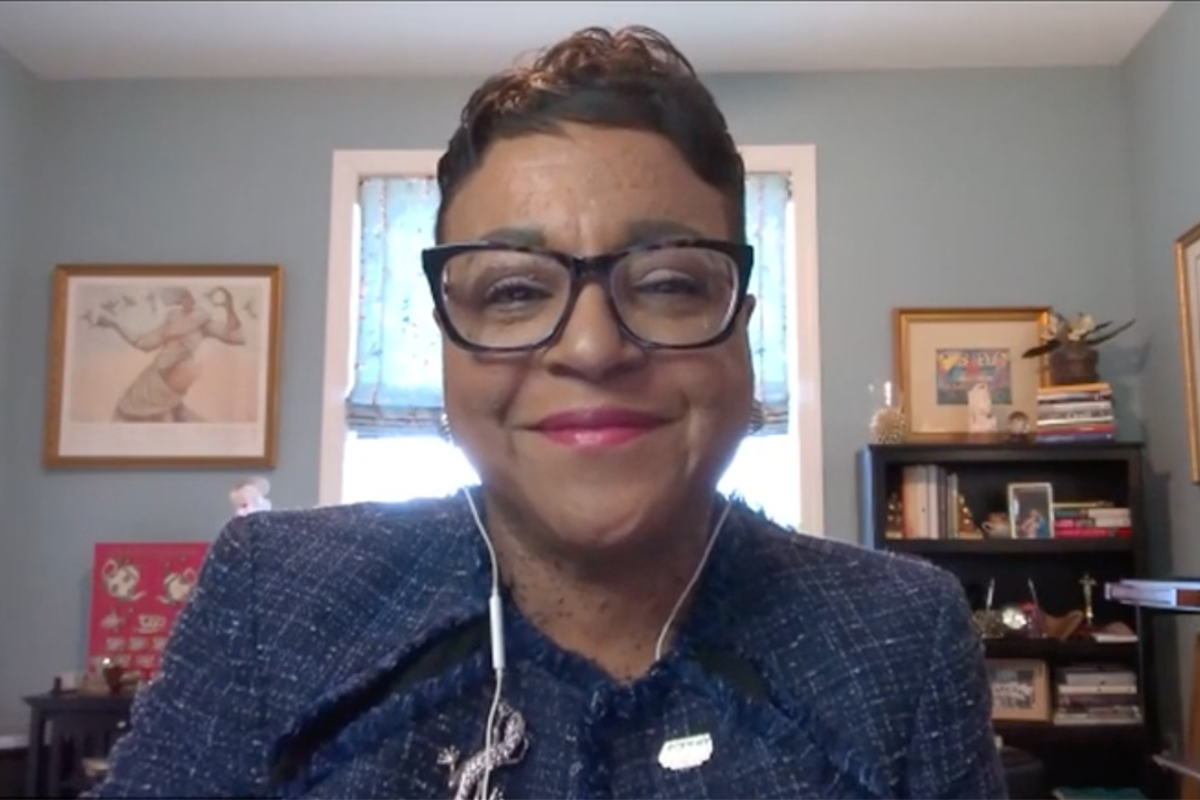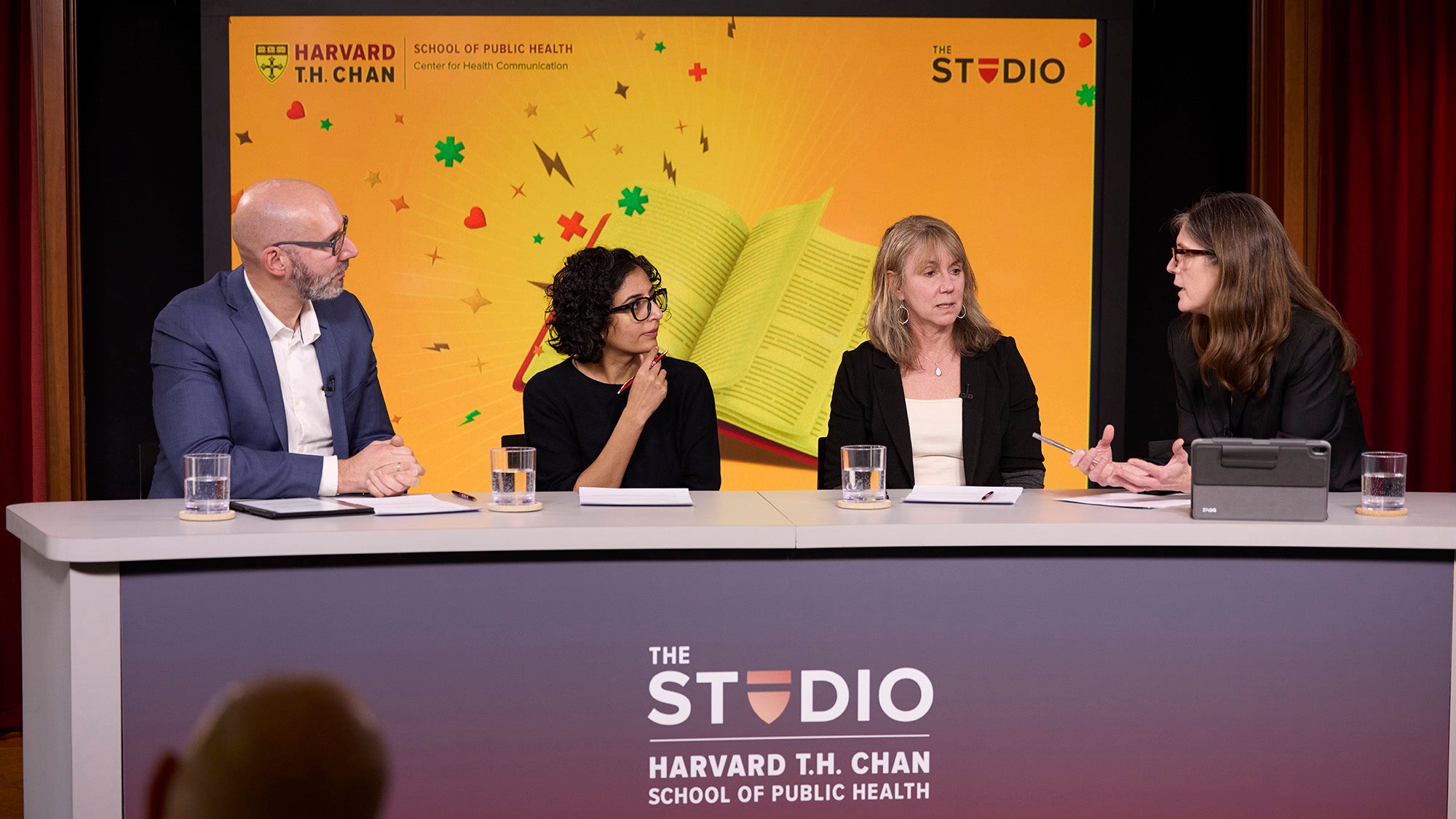Dismantling systemic racism in academic public health

March 29, 2023 – How can public health schools help eliminate the structural health disparities that continue to plague minorities and vulnerable populations? That’s a question Linda Alexander, chief academic officer of the Association of Schools and Programs of Public Health (ASPPH), addressed during a talk at Harvard T.H. Chan School of Public Health.
“The first thing that you do is clean your own house,” said Alexander. For her, that meant making sure that the ASPPH’s own strategic plan included encouraging its members to make progress on their diversity, equity, and inclusion goals and commit to nurture an inclusive organizational culture with zero tolerance of harassment, discrimination, or racism. “And also speaking of cleaning your own house, I applaud the efforts underway with the Harvard University’s Legacy of Slavery initiative,” she said.
Alexander, a tobacco control and health equity expert who previously served as the academic dean for the University of Kentucky College of Public Health and the West Virginia University School of Public Health, gave the Spring 2023 Yerby Diversity Lecture in Public Health on March 23. Titled “Toppling Statues in Academic Public Health,” the online event was part of a lecture series that brings minority scholars to the School to speak on diversity and other public health topics. It is named after the late Alonzo Smythe Yerby, a public health pioneer who was the first African American department chair at Harvard Chan School and also served as associate dean for community affairs.
During her career, Alexander has been involved in several efforts to end discrimination and harassment in learning environments, including recently co-chairing an ASPPH task force that created a blueprint for dismantling structural racism in academic public health.
During the Yerby Lecture, Alexander talked about the importance of engaging with and listening to the marginalized communities that have long been the subject of public health research. “What do they tell you that they need?” she said. “[Listen] to the community and the community’s voices and let those lead you … and make sure their voice is really in the room.”
Introducing Alexander, Harvard Chan School Dean Michelle Williams expressed the same sentiment, noting that public health academics and professionals must become the voice of the public. “We have to be active in all of the spaces where policy is crafted, where legislation is proposed, and within the many organizations and centers that contribute to the many facets of our work,” she said. “We have to be able to work across domains, disciplines, and sectors.”
Alexander also lamented the dangerous impact that ignoring community voices can have on population health. That’s something she experienced firsthand when she was appointed to the West Virginia COVID-19 Medical Advisory Board in 2020, which was tasked with determining what sort of communications about vaccination would be most effective in rural, Black, and Hispanic communities in the state. In discussing how to approach the Black population, Alexander said some members of the board thought that Black people would not want to be vaccinated because of the Tuskegee Study, a study that ran from 1932 to 1972 in which Black men with syphilis were deliberately left untreated so that researchers could observe how the disease played out. Therefore, the members reasoned, there wasn’t a need to be concerned about vaccine scarcity or prioritizing vaccination in that group. Alexander didn’t agree, and worked to set up focus groups to gather Black as well as Hispanic perspectives. It turned out that many in those groups indeed intended to be vaccinated—information that enabled the board to develop an appropriate outreach policy.
To dismantle racism in academic public health, Alexander said, schools must carefully examine their missions, curricula, admission policies, and human resource guidelines, and be ready to remove all barriers that prevent progress.
“It is important to embrace your heritage,” she said. “But also let us remember to acknowledge that the very symbols, statues, and monuments that reflect an organization may need to be toppled figuratively, if not literally.”


